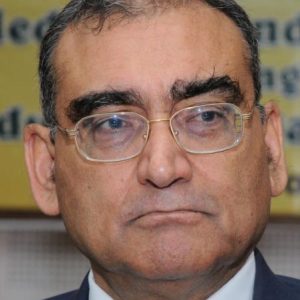
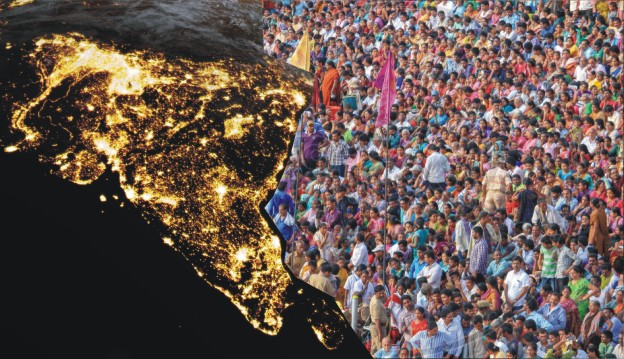
No one understands what is going on, where are we heading to, and what is to be done?
Even the patriotic people who genuinely want to help the country (and I regard India, Pakistan as one country, only temporarily separated by that historical British swindle called Partition, but are sure to reunite one day) are bewildered. As for our political leaders, they are only interested in power and pelf.
This article has been written to clarify and explain the situation.
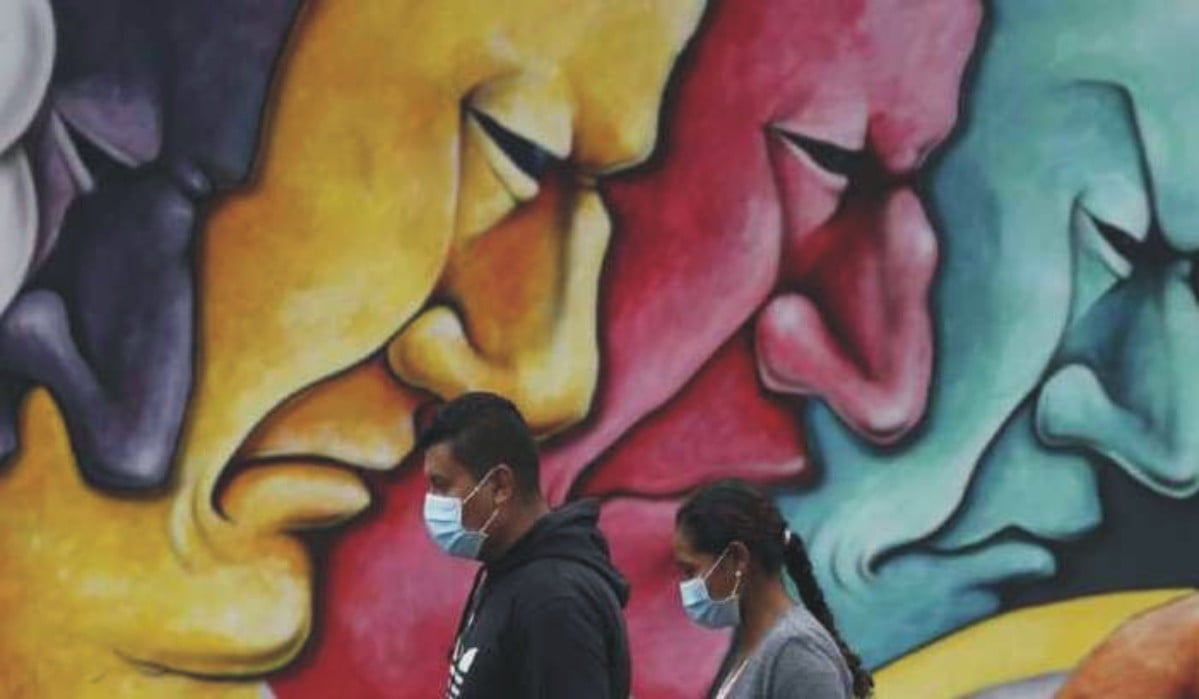 As I have repeatedly said, our national aim must be to transform our country from a poor, backward, semi feudal country to a modern, highly industrialised, prosperous one, with our people enjoying a high standard of living and decent lives.
As I have repeatedly said, our national aim must be to transform our country from a poor, backward, semi feudal country to a modern, highly industrialised, prosperous one, with our people enjoying a high standard of living and decent lives.
But how are we to achieve that objective?
I have explained that this is possible only by waging a mighty, historical people’s struggle i.e. a people’s revolution.
This is necessary because the vested interests in the prevailing order will tooth and nail oppose such a transfomation, and would like the status quo to continue, as they think their interests would suffer (which indeed it would).
Historical experience shows that before an actual revolution begins there is a long period of preparation preceding it. This prepatory period is in the form of an ideological revolution, i.e. a revolution in the field of ideas.
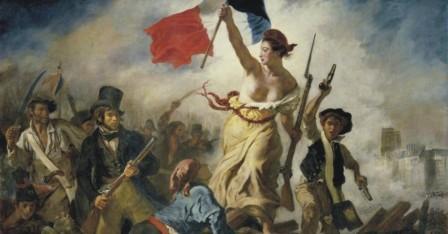 Thus, in France before the great French Revolution of 1789, there was a long period preceding it in which enlightened thinkers like Voltaire, Rousseau, and the French Encyclopedists (Diderot, Holbach, Helvetius,etc) launched a powerful relentless struggle against feudal ideas, feudal customs, and the entire feudal system.
Thus, in France before the great French Revolution of 1789, there was a long period preceding it in which enlightened thinkers like Voltaire, Rousseau, and the French Encyclopedists (Diderot, Holbach, Helvetius,etc) launched a powerful relentless struggle against feudal ideas, feudal customs, and the entire feudal system.
In Russia before the Russian Revolution of 1917 it was done by Lenin and others.
In England, before the revolutions of the 17th century this was done by John Locke and others, and in America before the American Revolution of 1775-1781 it was done by Jefferson, Thomas Paine and others.
In India today our historical situation is that we are in the stage of our ideologial revolution, that is, in the period preceding an actual revolution.
In this ideological revolution our weapons will be correct ideas, which we have to explain to our people. I am now referring to some specific issues.
1. Caste
The caste system has prevailed in India for centuries, maybe for thousands of years. It must be destroyed, as it is totally outdated in the modern world, and it divides us at a time when we must be united if we are to wage our historical people’s struggle. But how is that to be done ?
For that we have to understand the nature of caste. I have explained that in my articles .
 As explained in these articles, the caste system, whatever its origin (some say it originated in the Aryan invasion of India) later developed into the feudal, ocupational division of labour in society i.e. every vocation became a caste e,.g. lohar (smith), bunkar (weaver), badhai (carpenter), potter (kumbhar), chamaar (leather worker), dhobi (washerman) , nai (barber) etc.
As explained in these articles, the caste system, whatever its origin (some say it originated in the Aryan invasion of India) later developed into the feudal, ocupational division of labour in society i.e. every vocation became a caste e,.g. lohar (smith), bunkar (weaver), badhai (carpenter), potter (kumbhar), chamaar (leather worker), dhobi (washerman) , nai (barber) etc.
This was not peculiar to India. In England even today there are many people with surnames like Gardener, Taylor, Mason, Baker, Butcher, Goldsmith, Barber, Waterman etc which shows that their ancestors belonged to these vocations.
At one time, the caste system was a progressive institution as it introduced a rudimentary form of division of labour in society, and as the great British economist Adam Smith explained in his book ‘The Wealth of Nations’, division of labour leads to great progress.
However, something which may be good at one stage of a society’s development, may become bad later.
Today, as I have explained in my articles, division of labour cannot be on the basis of birth, but on the basis of technical skills. So today the caste system has become a curse on our society, an albatross hanging on our necks,which is holding up our progress, and must be destroyed.
How is it to be destroyed?
I have explained in my first article that it will be destroyed by ( 1) the people’s struggle (2) industrialisation, and (3) inter caste marriages.
2. Communalism
We must strongly support freedom of religion. But we must equally strongly oppose communalism i.e. religious extremism and preaching religious hatred.
 I have explained in my article the causes of communalism, which was artificially created in our society by our British rulers after suppressing the Mutiny of 1857 so
I have explained in my article the causes of communalism, which was artificially created in our society by our British rulers after suppressing the Mutiny of 1857 so
as to ensure their rule.
See also BN Pande’s speech .
So we have to patiently explain to our people that communalism is not inherent in our society, but was artificially created by the Britishers, and is being continued and promoted by some vested interests even today. We must strongly oppose it.
3. Parliamentary democracy
We borrowed the system of parliamentary democracy from the Britishers and enshrined it in our Constitution. It seems fine on the face of it, but in practice it runs largely on the basis of caste and religious vote banks (as everyone in India knows).
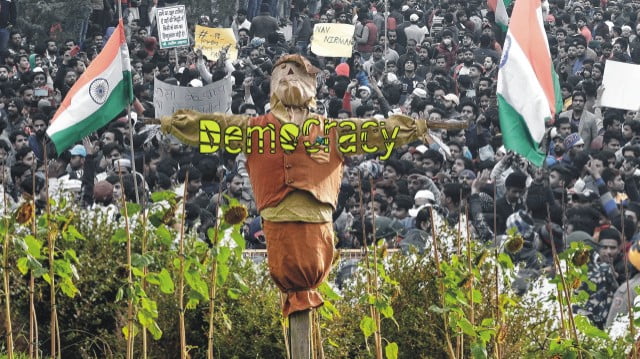 Casteism and communalism are feudal forces which must be destroyed if India is to progress, but parliamentary democracy further entrenches them.
Casteism and communalism are feudal forces which must be destroyed if India is to progress, but parliamentary democracy further entrenches them.
So it has to be replaced by an alternative system under which India rapidly industrialises and modernises. What that alternative system should be is for our patriotic people to think out using their creativity.
4. The notion of India
What is India has been explained in detail in this article, so I am not repeating it.
5. What our Constitution has become
The Indian Constitution seems a fine document, but the reality is given in the article
 There are many other issues which we must address in our ideological struggle, but these are to my mind the principal ones.
There are many other issues which we must address in our ideological struggle, but these are to my mind the principal ones.
The struggle will be long and arduous, and great patience will be required in waging it, for it means changing the backward mindsets of our people, something which is extremely difficult.
Also Read: The Song of the Stormy Petrel
___________
Also Read:
Industrialization versus Environmental Degradation
Centre’s Opaque Auction Rules For Pulses Rip Off Govt Coffers, Help Millers Strike Rich
Need to amend laws like UAPA to provide for punishment for those who slap false cases
Global Arms Trade: Who are the real winners?
Why not 40 pc tickets for women in Punjab and elsewhere?
Punjab – How a deadly cocktail of Agri-Water-Energy nexus going to destroy it?
North Pole and the ideological conflict of RSS & Hindutva
Politics of Symbolism: Dalit Chief Ministers in India

Disclaimer : PunjabTodayTV.com and other platforms of the Punjab Today group strive to include views and opinions from across the entire spectrum, but by no means do we agree with everything we publish. Our efforts and editorial choices consistently underscore our authors’ right to the freedom of speech. However, it should be clear to all readers that individual authors are responsible for the information, ideas or opinions in their articles, and very often, these do not reflect the views of PunjabTodayTV.com or other platforms of the group. Punjab Today does not assume any responsibility or liability for the views of authors whose work appears here.
Punjab Today believes in serious, engaging, narrative journalism at a time when mainstream media houses seem to have given up on long-form writing and news television has blurred or altogether erased the lines between news and slapstick entertainment. We at Punjab Today believe that readers such as yourself appreciate cerebral journalism, and would like you to hold us against the best international industry standards. Brickbats are welcome even more than bouquets, though an occasional pat on the back is always encouraging. Good journalism can be a lifeline in these uncertain times worldwide. You can support us in myriad ways. To begin with, by spreading word about us and forwarding this reportage. Stay engaged.
— Team PT


Copyright © Punjab Today TV : All right Reserve 2016 - 2024 |